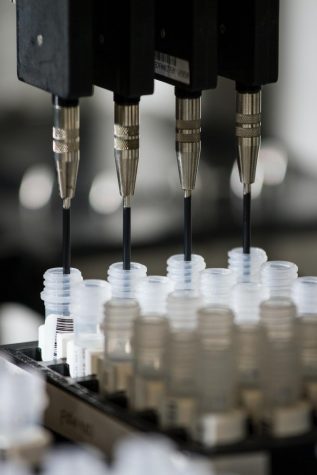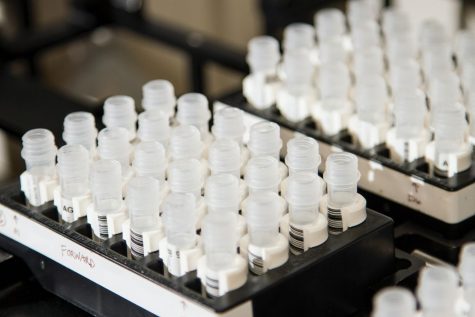What Is Biotechnology and Why Do We Care about It?
How biotechnology has changed the medical field and many other aspects of our daily lives.
From glow in the dark cats and cloned sheep to COVID-19 vaccines, biotechnology has been crucial to advancements in our understanding of the world. We use biotechnology in our everyday lives in the way we make different foods and in the medicine that keeps us healthy. So what is biotechnology? Biotechnology is the use of biological processes for industrial purposes such as food, healthcare, and much more.
But why is it important? Biotechnology is important to healthcare and medicine, the environment, food, and the overall advancement of society. Through genetic engineering, the alteration of genetic sequences, scientists have been able to create vaccines for viruses such as COVID-19, new medicines, such as interferon for cancer patients, and insulin/glucagon shots for diabetics. Biotechnology also allows flexibility in the food chain, and makes food readily accessible in places where there may be shortages. It is now possible to grow crops in the desert, where rainfall and nutrients in the soil are scarce. As we consume more land and resources we need to be more efficient in the types of plants we grow, so genetically engineering crops to be bigger or more productive allows us to provide for the growing population.


As our understanding of biotechnology expands, scientists are having more drastic breakthroughs. As we have all seen recently in the heat of the COVID-19 pandemic, scientists were able to formulate reliable vaccines faster than ever before with the use of mRNA (messenger ribonucleic acid). Dr. Katalin Karikó, who received “2022 Vilcek Prize for Excellence in Biotechnology”, showed that altering nucleotides, which are the building blocks of mRNA, makes mRNA safe to use in vaccines against pathogens. Her discovery allowed scientists to be able to construct COVID-19 vaccines with a 94% effectiveness in avoiding symptomatic sickness.
In addition to vaccines, biotechnology is being used in 4D printing and tissue engineering. We can now create self-healing substances for tissue engineering, which could potentially lead to limb replacement, organ replacement, and complete facial reconstruction. New 4D materials are able to alternate shape in reaction to water, are recyclable, and cell-compatible, which makes for the ideal material for tissue engineering. With this discovery, researchers have successfully implanted bone marrow stem cells in a very high concentration without rejection or failure.
Hey, my name is Sofia! This is my first year in journalism and I'm excited for the rest of this year. I'm a senior at Oakton and I'm on the Track and Field...





